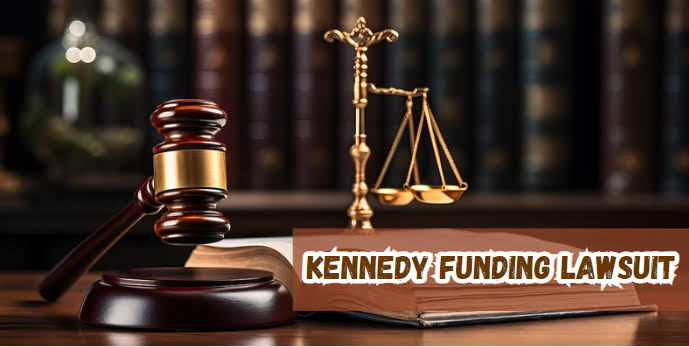Kennedy Funding, a distinguished call in the world of business real estate lending, has been involved in numerous excessive-profile felony battles over time. These complaints frequently stem from the complex nature of the lending agreements and the good sized sums of cash concerned. The Kennedy Funding Lawsuit has captured the attention of industry insiders and the general public alike, raising questions about the practices of difficult money creditors and the criminal protections afforded to debtors.
Background: Who is Kennedy Funding?
Kennedy Funding is a non-public, direct lender specializing in bridge loans and different short-term financing solutions for industrial real property projects. Founded within the Nineteen Eighties, the company has constructed a popularity for its willingness to fund offers that traditional banks would possibly shrink back from. Their loans are frequently characterized with the aid of better interest quotes and greater flexible terms, making them an appealing alternative for debtors who need quick access to capital.
However, this pliability comes with dangers. The agency’s lending practices have been scrutinized in diverse lawsuits, wherein borrowers have claimed that they were misled or subjected to unfair terms. The Kennedy Funding Lawsuit is just one example of the wider issues that can get up within the international of hard cash lending.
The Specifics of the Kennedy Funding Lawsuit
The Kennedy Funding Lawsuit revolves around a particular case where the borrower, a real estate developer, claims that Kennedy Funding engaged in deceptive practices. According to the lawsuit, the borrower alleges that Kennedy Funding provided misleading facts about the mortgage phrases and failed to disclose positive prices and conditions. The borrower additionally claims that the company engaged in competitive series procedures, main to enormous monetary losses.
The lawsuit seeks damages for breach of contract, fraud, and violations of client protection laws. It highlights the potential pitfalls of managing private lenders, where the shortage of law can every now and then lead to disputes over the equity of the terms.
The Legal Arguments: Both Sides of the Story
The Borrower’s Perspective
From the borrower’s standpoint, the lawsuit is set keeping Kennedy Funding liable for what they see as unethical enterprise practices. The borrower argues that they have been misled into signing a mortgage settlement that was a long way greater exhausting than they’d expected. They claim that Kennedy Funding did not offer clear and accurate statistics about the loan, inclusive of the proper fee of borrowing and the capability consequences for default.
The borrower’s criminal team is specializing in numerous key factors of their argument:
- Lack of Transparency: The borrower alleges that Kennedy Funding did now not offer ok disclosure approximately the terms of the loan, leading to a situation where they had been blind to the true financial implications.
- Aggressive Collection Tactics: The borrower claims that Kennedy Funding employed harsh collection methods that exacerbated their economic problems, pushing them in the direction of financial disaster.
- Violation of Consumer Protection Laws: The lawsuit also alleges that Kennedy Funding violated country and federal client safety laws by undertaking deceptive and unfair practices.
Kennedy Funding’s Defense
Kennedy Funding, alternatively, denies the allegations and argues that the borrower became fully aware of the loan terms and situations. The organization’s protection rests on the subsequent points:
- Full Disclosure: Kennedy Funding asserts that all applicable statistics changed into provided to the borrower and that they willingly entered into the settlement with complete know-how of the terms.
- Standard Industry Practices: The company argues that their lending practices are in keeping with industry requirements and that the borrower is attempting to shift blame for his or her economic problems.
- Contractual Obligations: Kennedy Funding contends that the borrower did not meet their contractual responsibilities, which caused the default and subsequent criminal motion. The organisation continues that their actions had been justified and within the bounds of the regulation.
The Broader Implications of the Kennedy Funding Lawsuit
The Kennedy Funding Lawsuit isn’t only a felony struggle among a lender and a borrower; it also increases broader questions about the law of private lending and the duties of both parties in such agreements.
The Role of Regulation
One of the principal issues highlighted by using the lawsuit is the relative lack of law inside the personal lending region. Unlike conventional banks, non-public creditors like Kennedy Funding are not situation to the identical degree of oversight. This can create an surroundings wherein disputes over loan phrases are more likely to rise up. The lawsuit may also set off requires extra regulation of private creditors, especially in phrases of transparency and purchaser safety.
The Risks of Hard Money Lending
The case additionally underscores the dangers associated with tough money lending. While those loans may be a lifeline for debtors who want quick get entry to to capital, they can also include giant risks. High hobby rates, brief reimbursement periods, and strict consequences for default can create a financial burden that some debtors are unprepared to address.
The Importance of Due Diligence
For debtors, the Kennedy Funding Lawsuit serves as a reminder of the significance of due diligence while entering into any loan settlement. Understanding the terms of the mortgage, the ability risks, and the lender’s reputation is vital to averting prison disputes. Borrowers ought to are looking for prison recommendation and punctiliously overview all documentation before signing at the dotted line.
Conclusion: What Lies Ahead for Kennedy Funding?
The outcome of the Kennedy Funding Lawsuit remains uncertain, however it is in all likelihood to have good sized repercussions for each the organization and the broader lending enterprise. If the borrower is a success, it is able to cause multiplied scrutiny of private lenders and doubtlessly new policies aimed toward defensive clients. On the opposite hand, if Kennedy Funding prevails, it could reinforce the fame quo, permitting personal lenders to hold operating with minimal oversight.
In both case, the lawsuit is a stark reminder of the complexities and capacity pitfalls of the commercial real property lending market. It underscores the want for clean verbal exchange, transparency, and fairness in all financial dealings, in particular in an industry wherein the stakes are so excessive. As the legal battle unfolds, enterprise watchers may be paying near interest to the consequences for creditors, debtors, and the future of private lending.
For more insights and detailed articles, explore the menu on Kennedy Funding Lawsuit
Read more on ExposedMedia


